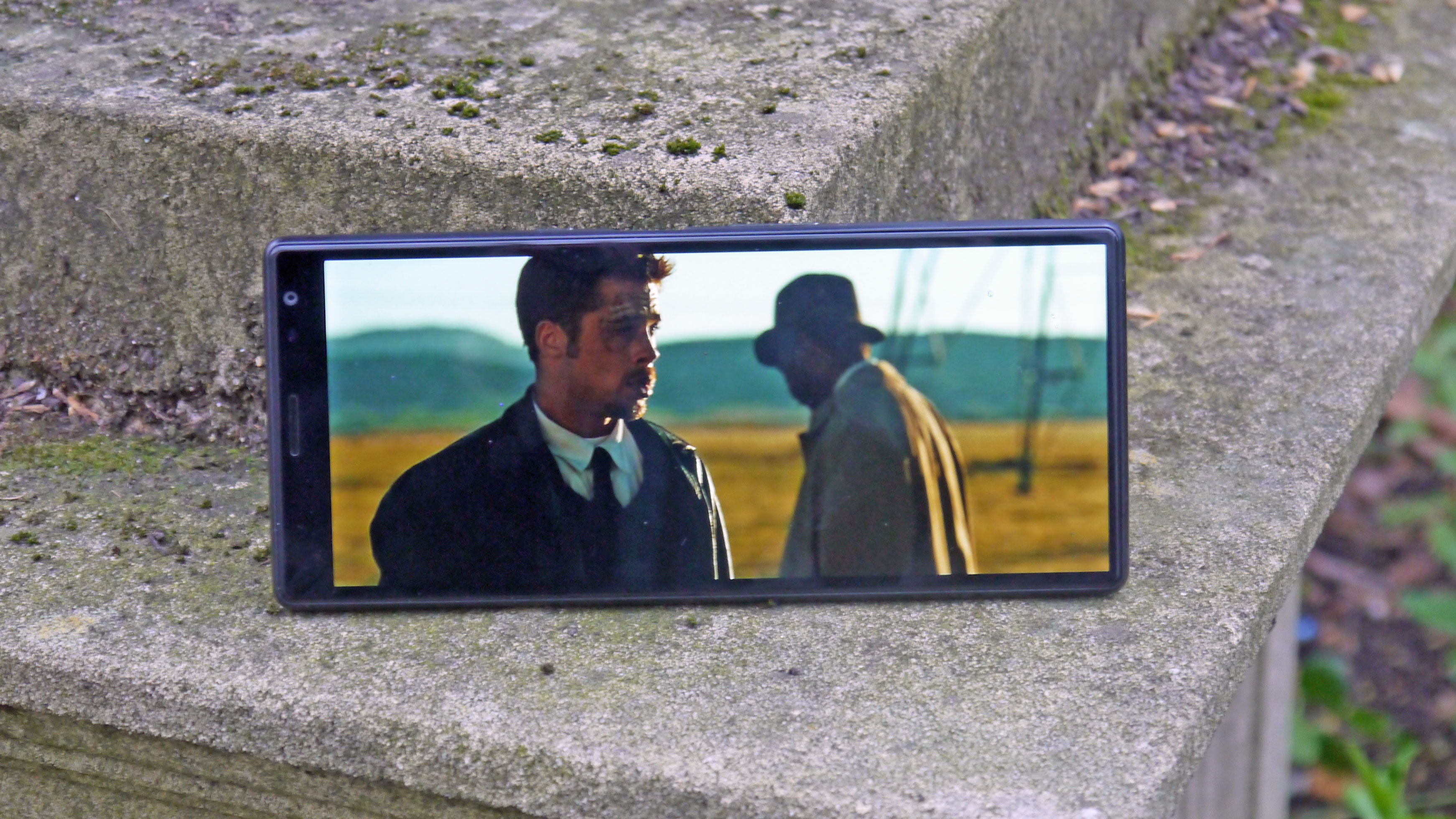Why you can trust TechRadar
Interface and reliability
- Features to help navigate the UI
- Tiny keyboard
The Xperia 10 Plus may have an unwieldy display size, which makes it hard to reach the extremes of the screen, but Sony has included a bunch of features to help you get around this.
The first is Side Sense – when you tap twice at the right edge of the screen, a small menu pops up with your most-used apps. This makes navigation much easier if you have so many apps that browsing the app drawer for them is a chore, and is just as useful for when you want to quickly jump between apps – we soon found ourselves using it all the time.
There’s also One-Handed Mode – when you double-tap the home button, the usable screen area will shrink so it’s more in line with the display size of a typical phone. This makes it much easier to browse the interface for activities like texting or scrolling social media, although it doesn’t allow Side Sense when in use, which does limit its potential. In addition, while you can alter the size of the screen area, there’s still an ugly black void where the rest of the screen would be.
Another novel feature is Invert Colors, which changes the colors of the display to resemble a photo negative. This doesn’t have any practical use (unless you consider blinding yourself on the home screen useful), but some games and movies looked amusing when it was activated.
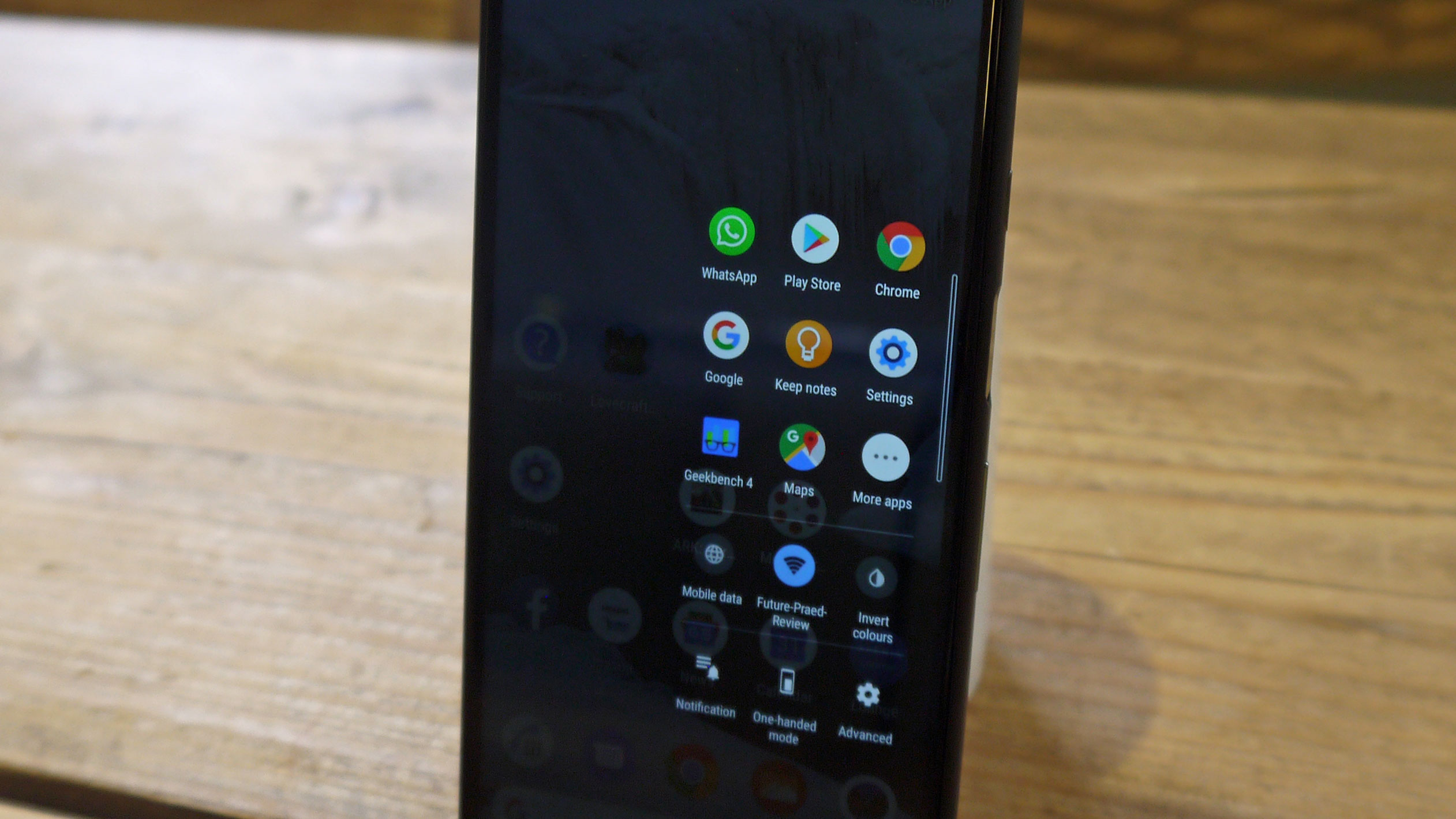
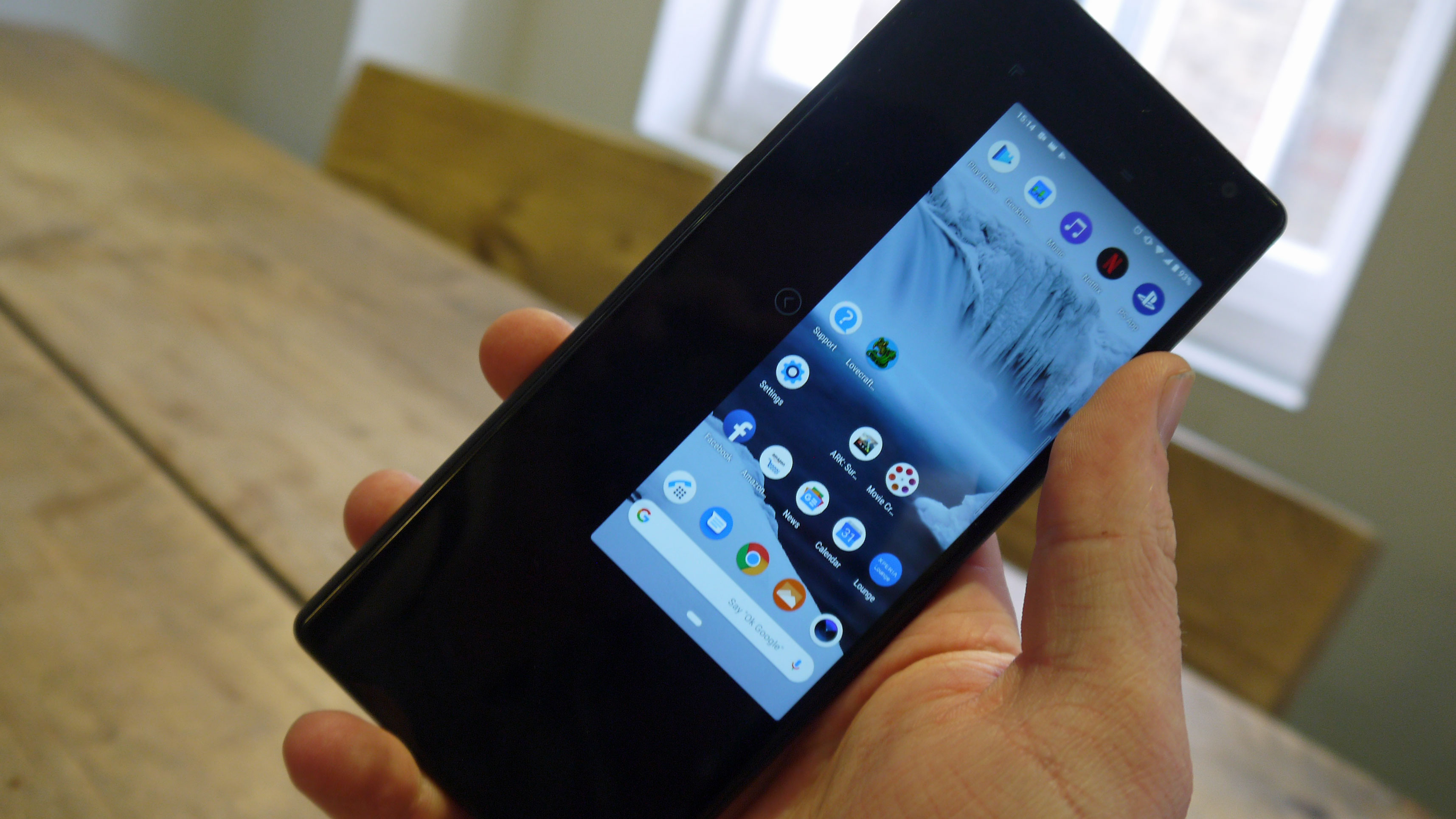
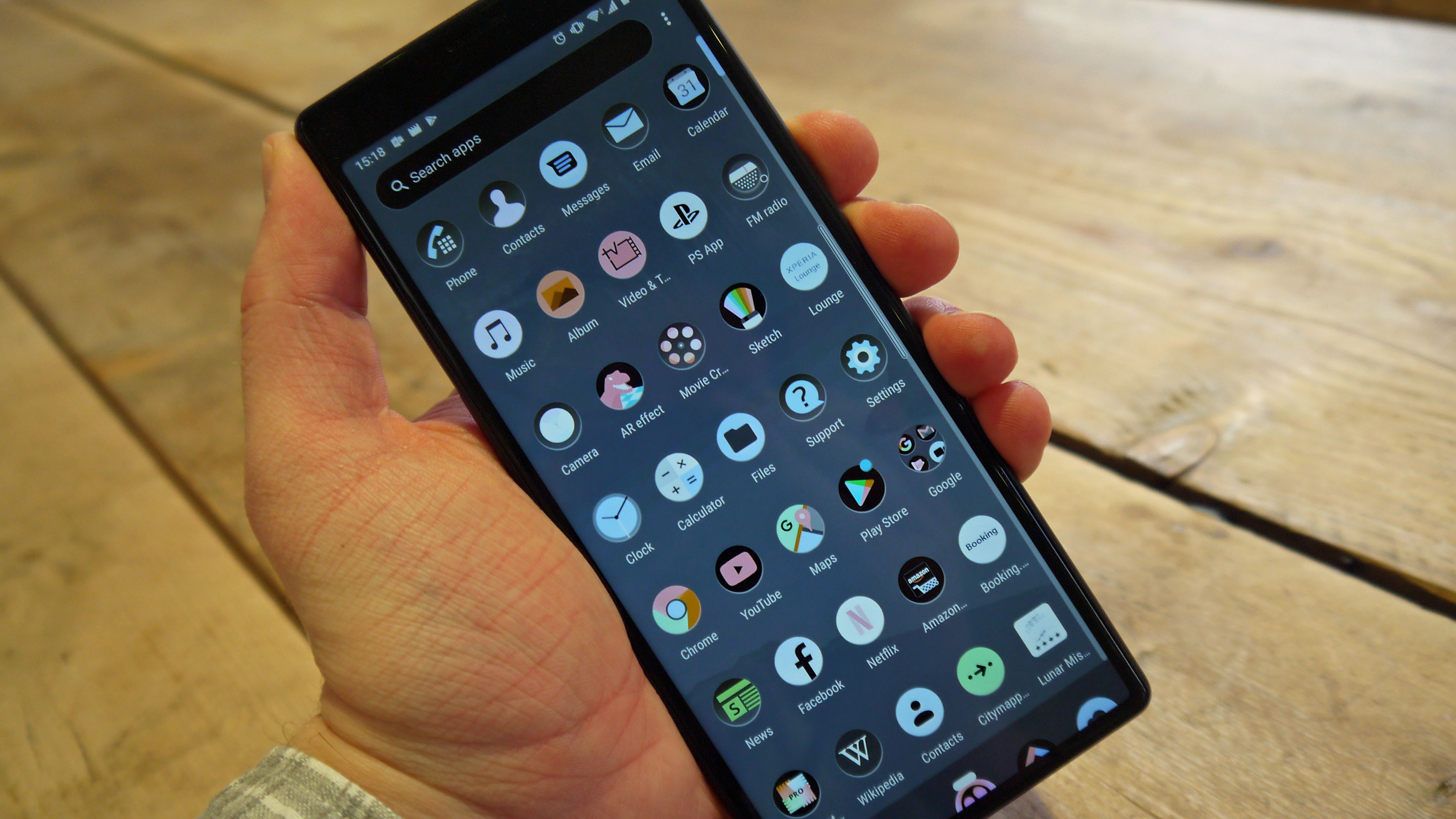
One irritating problem we had while navigating the interface was with the swipe-up-for-menu feature on Android Pie, as the Xperia 10 Plus has no ‘past apps’ button, so you also need to swipe up from the home button to access any apps you were just using.
In practise we found that you only swipe up part-ways to access past apps, and all the way up to view the app drawer, but we found it tricky accessing the correct menu when swiping a millimeter too far brought you to the wrong place.
Generally, however, we found the Sony Xperia 10 Plus rather easy to navigate – Side Sense and One-Handed Mode more than make up for the challenges posed by the large display.
Typing with the device was a different matter though, as the rather narrow display means the keyboard is frustratingly small. We found it hard to accurately select the right letter, even when using SwiftKey Keyboard, and the odd layout of punctuation on the secondary keyboard menu meant we had trouble getting used to writing messages.
Movies, music and gaming
- Creates a cinema-like experience for certain movies
- Not all apps use the extra screen space
- Powerful speakers
The raison d'être of the Sony Xperia 10 Plus’ stretched display is for watching movies – Sony’s logic is that since most movies are shot in 21:9, a phone with this aspect ratio will have no annoying black bars at the top and bottom of the screen when you’re viewing them.
Sony is right, to an extent – the Xperia 10 Plus is a fantastic handset for viewing movies that have released in theatres.
There are no black bars, and the high-resolution stereo audio recreates, albeit on a smaller scale, the feeling of watching a film in the cinema – except without overpriced popcorn or chatty pensioners in the back row.
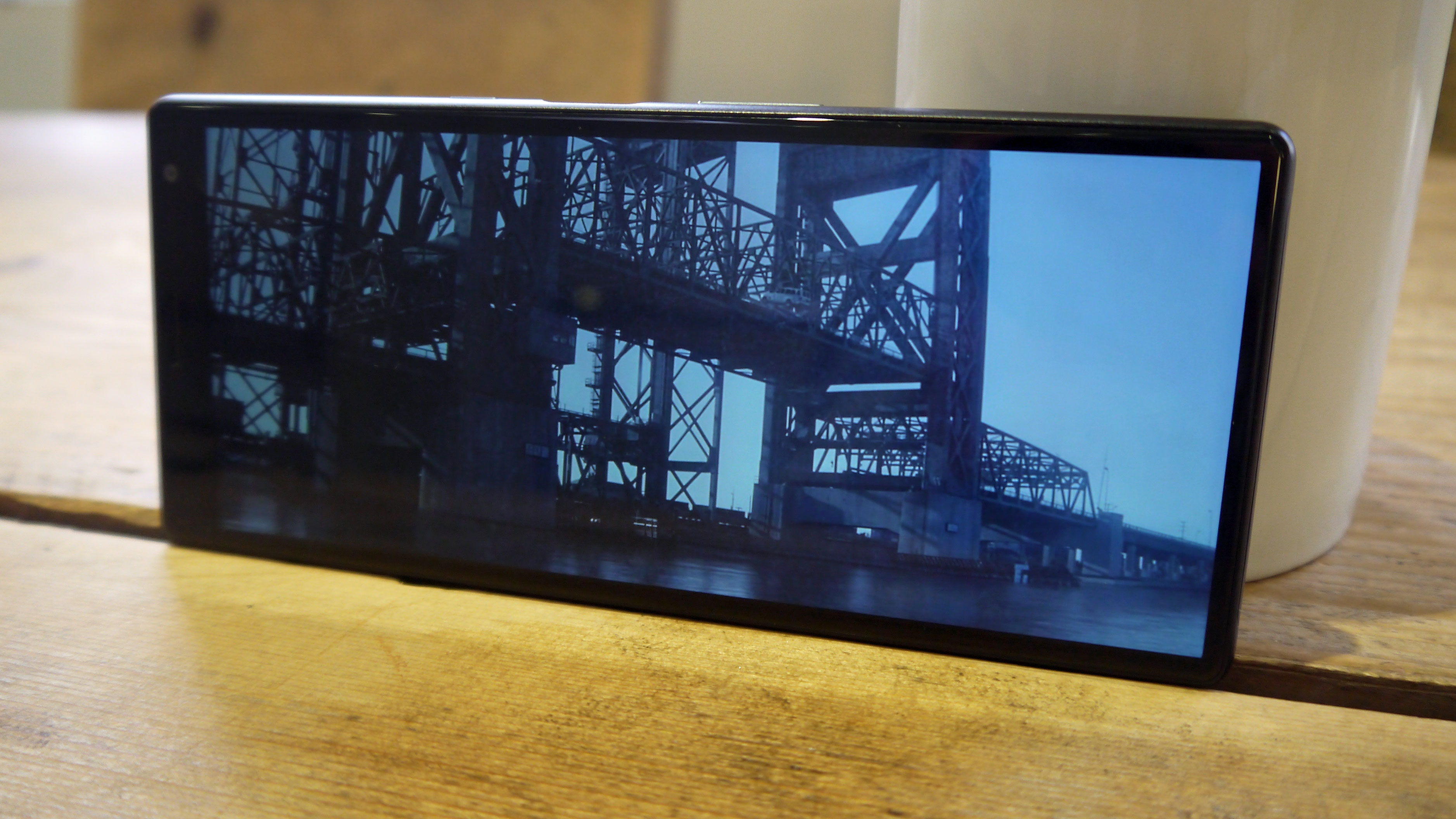
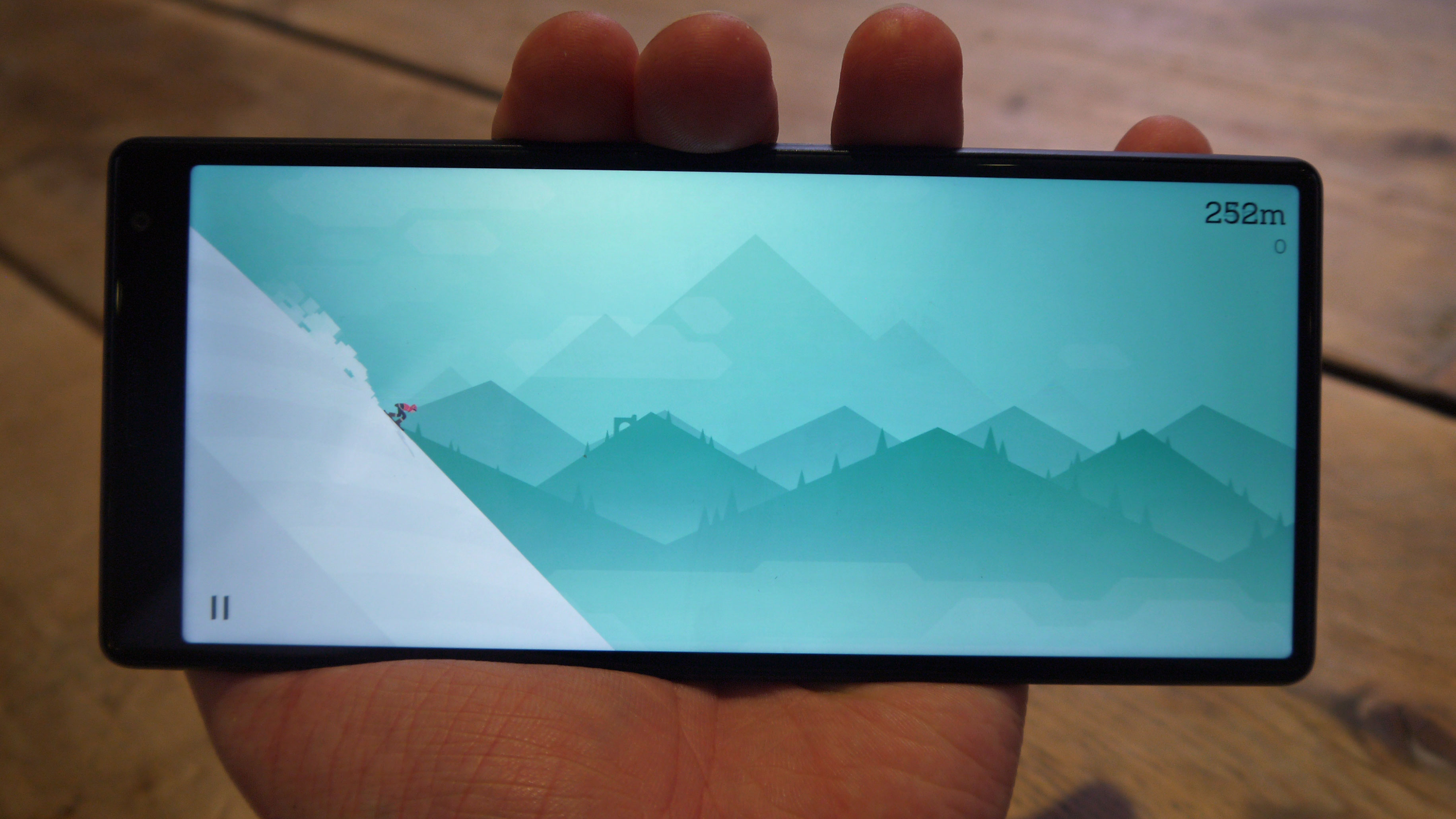
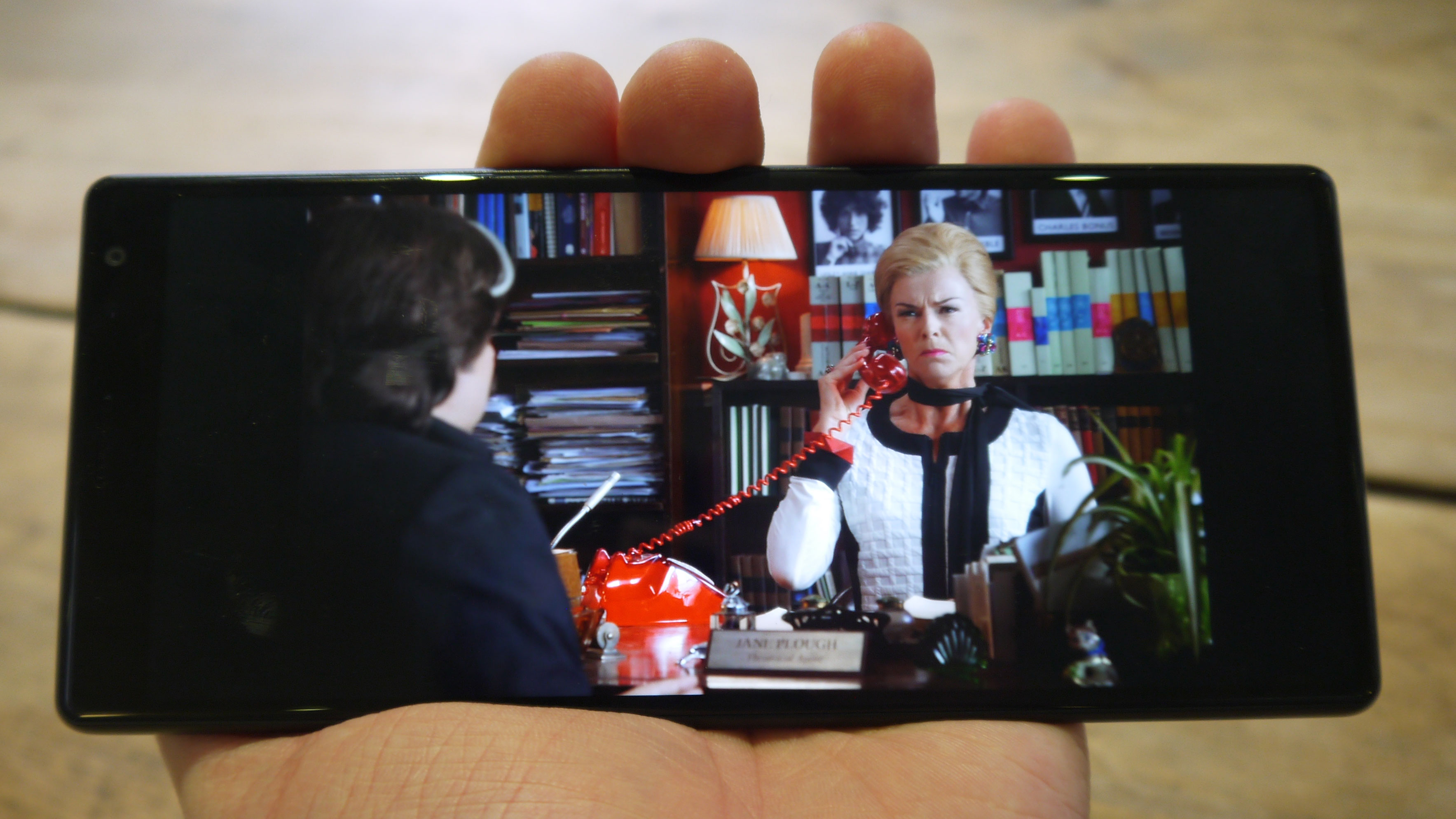
However, the flaw in Sony’s plan is that not all media is filmed in 21:9: TV shows, and Netflix original films, are all filmed in 19:9, which is why they can be viewed full-screen with no black bars on a regular-sized phone.
When watching a TV show or certain films (including non-Netflix films, as we found Goodfellas had this problem too) there are chunky black bars to the left and right of the display, which were just as distracting as upper and lower black bars on another device.
While the Sony Xperia 10 Plus cinematic experience may be a mixed bag, the screen size does become a huge blessing for playing games, with the extra real estate used by some games effectively.
When we played Alto’s Odyssey, we found the wider screen made the game a lot easier to play; however many games, like PUBG Mobile, didn’t make use of the extra space.
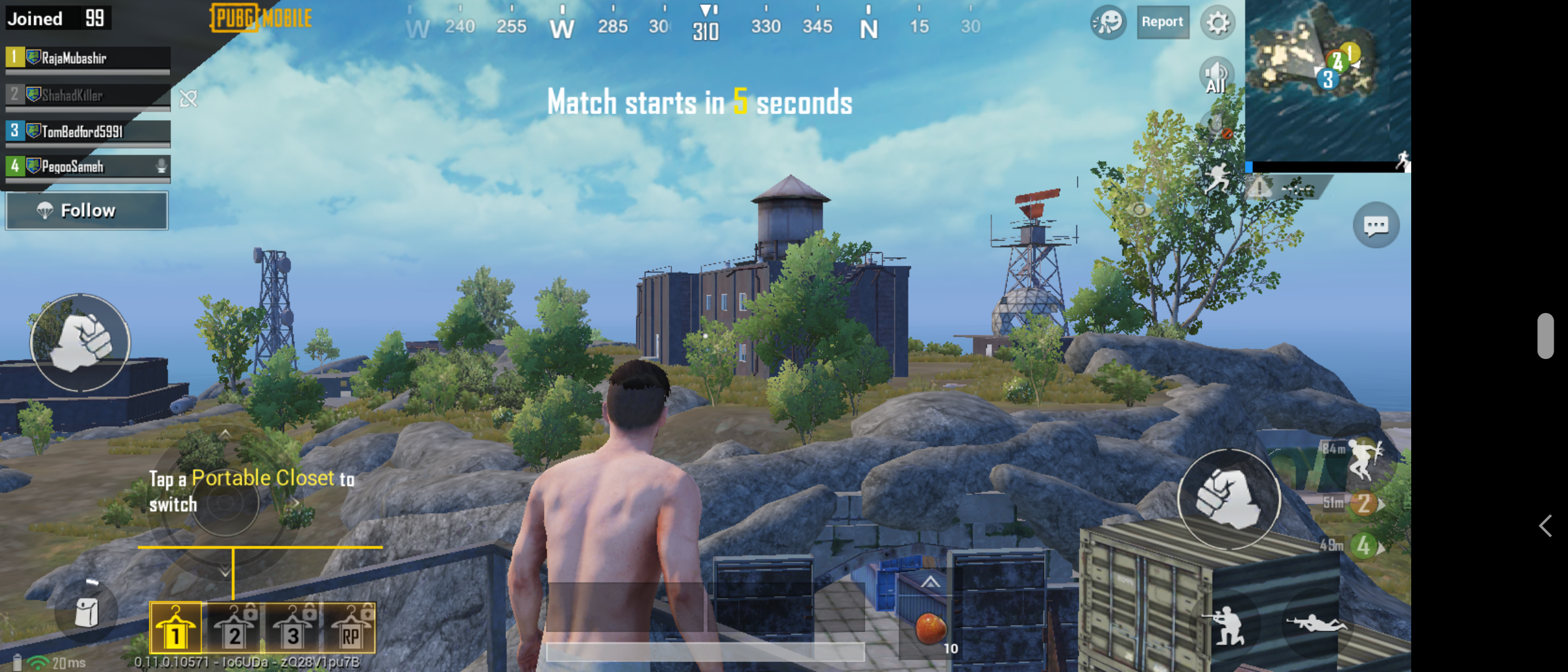


When movies or games did have black space to the sides, these chunky bars became a little distracting – especially given the large upper bezel, which also resembled a side bar when watching media.
One great feature of the Sony Xperia 10 Plus is its speakers – we found them surprisingly loud for a phone, and they delivered great sound quality, with meaty bass and distinct treble at a variety of volumes.
Performance and benchmarks
- Generally quick performance
- Chipset not built for gaming
We found the Sony Xperia 10 Plus ran Android 9 just as fast as comparable handsets, and we rarely found apps slow to open or use – with the exception of the camera, which occasionally froze or took a while to process commands.
The device only has 4GB RAM, so it’s not exactly a processing powerhouse, but we rarely encountered issues in day-to-day use.
When we ran the phone through a benchmark test it returned a multi-core score of 4,862, very close to that which the Samsung Galaxy S6 received in 2015, putting the Xperia 10 Plus firmly in the middle of the mid-range phone pack.
This means that while it’s not particularly great for high-performance gaming or running demanding software, it’s fine for day-to-day use.
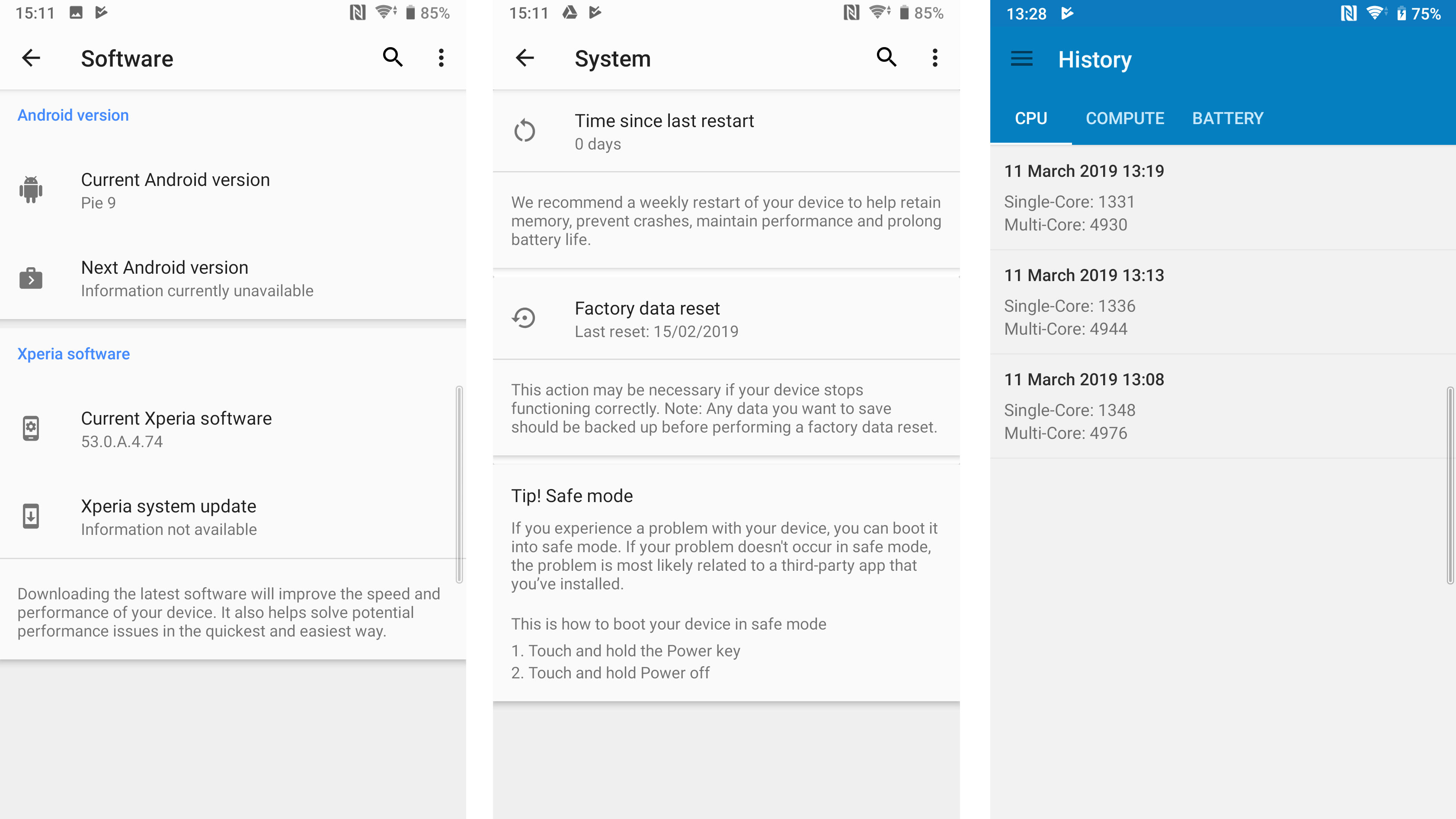
We were a little surprised that a device with mid-range specs performed so well – even when loaded with apps and multi-tasking, the Xperia 10 Plus was still fairly slick.
When the camera app was open, even if not in use, there was a noticeable drop in speed, but other than that we were pleasantly surprised by the phone’s performance.
It didn’t fare so well for gaming, however, and there was noticeable stuttering when we played PUBG Mobile and ARK: Survival Evolved. Inside the Xperia 10 Plus is a Snapdragon 636 chipset, which is a pretty solid mid-range chipset, but not sufficient to handle such high-end games.
Current page: Anything else I should know?
Prev Page Battery life and camera Next Page Verdict and competition
Tom Bedford joined TechRadar in early 2019 as a staff writer, and left the team as deputy phones editor in late 2022 to work for entertainment site (and TR sister-site) What To Watch. He continues to contribute on a freelance basis for several sections including phones, audio and fitness.
